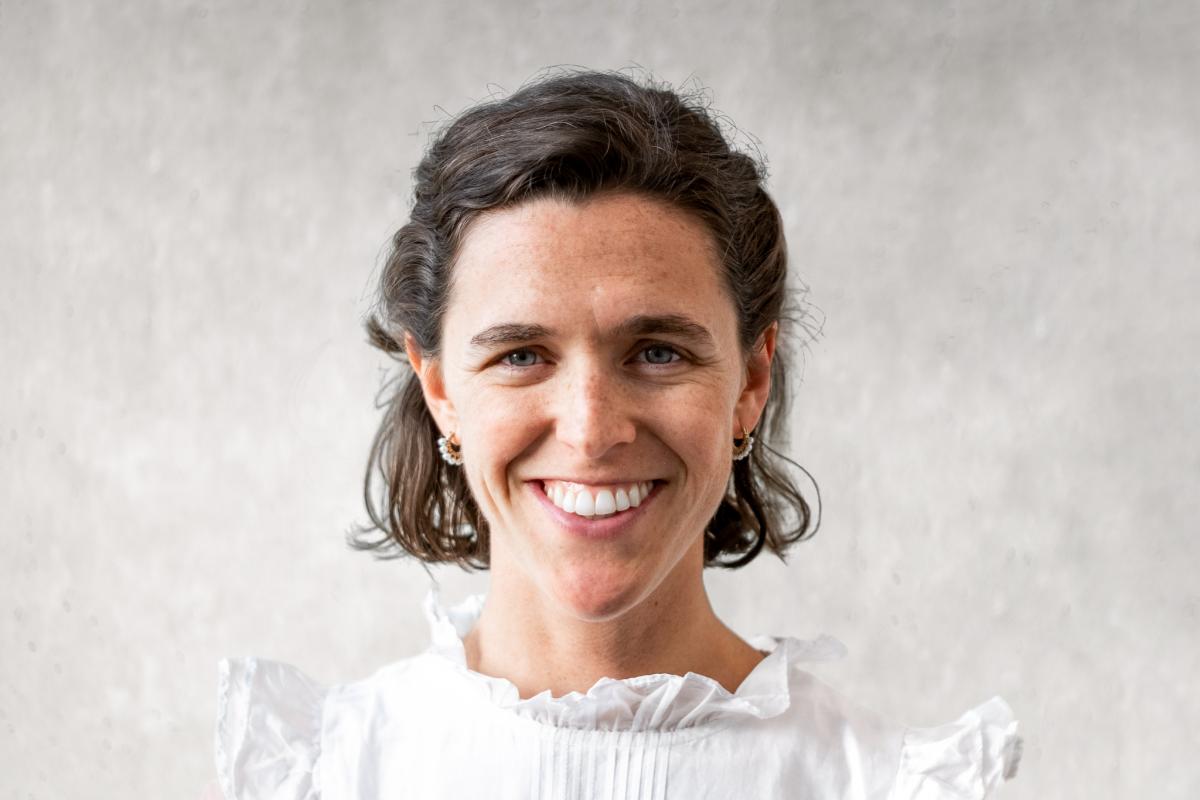The Next Wave — Candelaria Bergero
While she is firmly grounded in the lab, AirUCI grad student Candelaria Bergero has her eyes to the skies. As part of AirUCI’s Steven Davis research team, she is lead author on a paper published recently in Nature Sustainability entitled “Pathways to net-zero emissions from aviation” that has generated quite a lot of attention.
In their research on sustainable aviation fuels (SAF), she and her team evaluated several potential scenarios in which the aviation industry could reduce emissions through increases in efficiency, decreases in demand, and increased use of SAF. “We found that even though there are several ways you could achieve a net-zero aviation system, the idea of deploying sustainable aviation fuels in large scales would be very important,” Candelaria said.
On the February 22nd broadcast of NPR's Marketplace, Candelaria was interviewed about the study. Unlike the automotive industry, aviation is considered a hard to decarbonize sector. “I think we all benefit from flying,” she said, “so if we could find a way to do this without harming the planet, I think it’d be very beneficial.” Read and hear the interview
At this point, SAF accounts for less than 1% of global jet fuel demand. With roughly 100,000 airline flights each day, aviation contributes over 2% of global carbon dioxide emissions and has a high climate impact because of its non-CO2 emissions.
But not all SAF is created equal. “When we say ‘sustainable aviation fuels,’ we kind of imply that they’re all the same, but they’re not. The key thing is to find sustainable feedstocks that could be converted to SAFs,” Candelaria said. She feels that the key factor in the biofuels discussion is where the feedstock actually comes from, what is being used to create the biofuel. “It’s not so much the production of the fuel, but what is used to make it. That is where the emissions generated can be much higher than what is being saved,” she says.
Producing enough feedstock, or source material, to significantly increase SAF production could also increase competition for land. “If you’re deforesting a very pristine place to create your feedstock for aviation, sure, aviation will get all the gold medals for being net-zero,” Candelaria said, “but then in the atmosphere, you will be releasing all of this carbon by deforesting this pristine forest.” The key, she said, is understanding the “holistic” impacts of any new project. “You want to be very careful that you’re not creating other problems by making aviation net-zero.”
Other areas of research that interest Candelaria include the implications that net-zero targets bring to people and the tradeoffs and impacts of carbon dioxide removals. She has been a lead or co-author on five publications to date.
Candelaria is originally from Cordoba, Argentina and has held internship, consultant, and research positions in organizations such as The Carter Center, Pacific Northwest National Lab, and the Argentine Council for International Relations. In her spare time she likes to go hiking, knit, and take care of her plants. We look forward to many more important studies from Candelaria and will follow her career with great interest.

